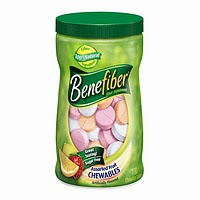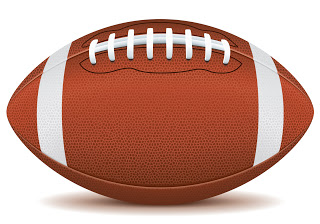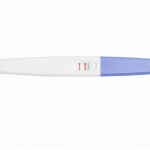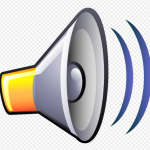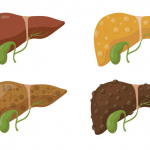Fiber is a key component of our diet, and most of us don’t get enough. There are lots of supplements and high-fiber products out there, but some are definitely better than others. The first question is, how much fibre do we get, and how much do we need?
It turns out that Canadian adults only get about half of the 25-30g of daily fiber recommended by Health Canada. Fiber is found in beans, grains, vegetables, and fruits. Eating a diet that is high in fiber has many potential health benefits, including a decreased risk of heart disease, stroke, and type 2 diabetes, in addition to regulating bowel habits and possibly decreasing the risk of colon cancer.
So what is the best way to top up your fiber intake? One has only to walk down the cereal or granola bar aisle of the grocery store to become instantly innundated with all kinds of labels that claim that they are high in fiber. The key to knowing how much fiber you are getting in ‘high fiber’ products is to read the nutritional label, as the actual number of grams of fiber in each of these products vary widely.
Here’s the skinny on a few of these products:
- All Bran: Excellent. 1/2 cup contains 90 calories, 12g of fiber
- All Bran Buds: Also excellent: 1/3 cup contains 80 calories, 11g fiber
(I’m eating them for breakfast as I’m writing this blog!) - Benefibre powder: 2 teaspoons contains 10 calories, 6g fiber
Uses inulin fiber as its fiber source, which is a natural soluble fiber derived from the chicory root. - Benefibre To Go Stick Packs: one stick has 10 calories, 3g fiber
- Benefibre chewables: 3 tablets contain 3g of fiber (guar gum is the fiber source)
- Metamucil: 1 teaspoon contains 25 calories, 5g fiber
Not all fiber products are so rich in fiber, however. For example, the high fiber bars don’t provide as much bang for your caloric buck:
- All Bran Bars, have 130 calories and only 4g of fiber
- While 1 cup of Fiber1 cereal has 210 calories and 11g of fiber, Fiber 1 bars have 140 calories and only 5g of fiber (though the American Fiber 1 bars have 9g of fiber)
- Metamucil chocolate fiber wafers contain 50cal and 2g of fiber each
Increasing your fiber intake is also beneficial for people trying to lose weight, as fiber helps you to feel full sooner and longer. Remember to factor the calories into your total daily intake! For diabetics, it is also important to read the nutritional labels to evalulate the impact of the carbohydrates in each of these products on your blood sugar.
A final note of caution. Remember the old adage, ‘Too much of a good thing’? Overdoing your fiber intake can result in stomach upset, bloating, cramps, and paradoxically, constipation! Increase your fiber intake gradually to reach the above goals will help to avoid these unwanted potential side effects as well.
Dr. Sue © 2010 www.drsue.ca drsuetalks@gmail.com

